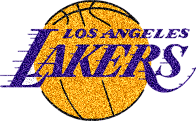Ultimate Game Breakdown: Players: Lakers 104 Nuggets 97 in Denver Nov. 1
REAL PLAYER RATINGS (QUALITY) FOR THIS GAME
DENVER QUALITY
Anthony Carter, PG 1.082
Chris Andersen, PF 0.928
Juwan Howard, PF 0.881
Kenyon Martin, PF 0.753
J.R. Smith, SG 0.604
Allen Iverson, SG 0.558
Nene, C 0.534
Carmelo Anthony, SF 0.264
Linas Kleiza, SF 0.110
LAKERS QUALITY
Josh Powell, PF 1.207
Kobe Bryant, SG 1.092
Trevor Ariza, SF 1.084
Pau Gasol, PF 0.930
Lamar Odom, PF 0.574
Derek Fisher, PG 0.455
Andrew Bynum, C 0.414
Vladimir Radmanovic, SF 0.276
Sasha Vujacic, SG -0.110
Jordan Farmar, PG -0.393
SCALE FOR RPR (QUALITY) RATINGS FOR A SINGLE GAME
Historic Superstar for this game 1.400 and more
Superstar 1.050 to 1.399
Star/Outstanding 0.800 to 1.050
Very Good 0.650 to 0.799
Major Role Player 0.525 to 0.649
Role Player 0.450 to 0.524
Minor Role Player 0.400 to 0.449
Very Minor Role Player or Very Important Defender 0.350 to 0.399
Poor Game or Extremely Importand Defender 0.275 to 0.349
Very Poor Game Regardless of Defending 0.200 to 0.274
Disaster Game Regardless of Defending minus infinity to 0.199
****************************************************
REAL PLAYER PRODUCTION (QUANTITY) IN THIS GAME
DENVER QUANTITY
Anthony Carter, PG 33.55
Kenyon Martin, PF 21.85
Allen Iverson, SG 20.65
Nene, C 18.15
J.R. Smith, SG 16.30
Chris Andersen, PF 14.85
Carmelo Anthony, SF 10.05
Juwan Howard, PF 7.05
Linas Kleiza, SF 2.20
LAKERS QUANTITY
Pau Gasol, PF 39.05
Kobe Bryant, SG 36.05
Trevor Ariza, SF 17.35
Derek Fisher, PG 15.00
Lamar Odom, PF 14.35
Andrew Bynum, C 8.70
Vladimir Radmanovic, SF 8.55
Josh Powell, PF 8.45
Sasha Vujacic, SG -1.65
Jordan Farmar, PG -5.90
SCALE FOR RPP (QUANTITY) RATINGS FOR A SINGLE GAME
FOR STARTING PLAYERS
Happens only a few times a year in the NBA 40.0 and more
Massive and Memorable Game 36.0 to 39.9
Huge Game 32.0 to 35.9
Very Big Game 28.0 to 31.9
Big Game 24.0 to 27.9
Typical Average Game 20.0 to 23.9
Somewhat Below Average Game 16.0 to 19.9
Way Below Average Game 12.0 to 15.9
Bad Game 9.0 to 11.9
Really Bad Game 5.0 to 8.9
Total Disaster minus infinity to 4.9
SCALE FOR RPP (QUANTITY) RATINGS FOR A SINGLE GAME
FOR NON-STARTING PLAYERS
Massive and Memorable Game 30.0 and more
Huge Game 26.0 to 29.9
Very Big Game 22.0 to 25.9
Big Game 18.0 to 21.9
Typical Non-Starter Game 12.0 to 17.9
Below Average Even For a Non-Starter 9.0 to 11.9
Way Below Average Even For a Non-Starter or Limited Minutes 6.0 to 8.9
Bad Game Even for a Non-Starter or Very Limited Minutes 3.0 to 5.9
Disaster: Nothing Much to Report minus infinity to 1.9
THE HIGHEST QUALITY PLAYERS IN THIS GAME
LAKERS OUTSTANDING QUALITY GAMES
Superstar during minutes on the court: Josh Powell
Superstar during minutes on the court: Kobe Bryant
Superstar during minutes on the court: Trevor Aziza
Star/outstanding during minutes on the court: Pau Gasol
NUGGETS OUTSTANDING QUALITY GAMES
Star/Outstanding during minutes on the court: Anthony Carter
Star/Outstanding during minutes on the court: Chris Andersen
Star/Outstanding during minutes on the court: Juwan Howard
Star/Outstanding during minutes on the court: Kenyon Martin
THE GREATEST POWER PLAYERS OF THIS GAME 
LAKERS POWER PLAYERS
Massive and Memorable Game: Pau Gasol
Massive and Memorable Game: Kobe Bryant
Big Game: Trevor Aziza
NUGGETS POWER PLAYERS
Huge Game: Anthony Carter
Big Game: Kenyon Martin
USER GUIDE FOR THE ULTIMATE GAME BREAKDOWNS: PLAYERS (Last updated Oct. 25)
You are viewing RPR2.0! This is a "just the important facts please, and give them to me quick" type of report.
I will in many cases do a little commentary at the bottom of the UGB:Ps, but most of the game and team commentary will be in the separate "Game and Team Reports." Game and Team articles are, with any luck, going to be produced for 26 Nuggets and for 26 Raptors games this season. Ultimate Game Breakdowns: Players, such s the one here, will be done for the 26 key games, and for other games as well, but not necessarily for all 82 games. I don't really know how all this new editing is going to play out time wise yet!
The games that get the full treatment have been very carefully chosen to be the most important games, which are generally the games against the best teams. Full treatment including the kitchen sink report games have been chosen from among only games where neither team is at a disadvantage due to playing on back to back nights. Other internet basketball "experts" are really wasting their time to some extent when they report on a Kegame where one team was playing on back to back nights and the other team was not, because the great majority of those games are almost automatically won by the team that has more rest. I used to do those stupid games, but I'm not doing them anymore, because I keep trying to get better and better at understanding and teaching basketball, so I make changes such as this.
With an Ultimate Game Breakdown-Players report, you can see very rapidly who was most responsible for the winning or the losing of the game. Then someone like me can easily write a separate game report which explains how things might have worked out better for a team, or why things worked out just about as well as possible, as the case may be.
The Real Player Ratings formula has been very carefully and accurately tweaked again and is currently as follows:
POSITIVE FACTORS
Points 1.00 (at par)
Number of 3-Pt FGs Made 1.00
Number of 2-Pt FGs Made 0.60
Number of FTs Made 0.00
Assists 1.75
Offensive Rebounds 1.15
Defensive Rebounds 1.25
Blocks 1.60
Steals 2.10
NEGATIVE FACTORS
3-Pt FGs Missed -1.00
2-Pt FGs Missed -0.85
FTs Missed -0.85
Turnovers -2.00
Personal Fouls -0.80
ACTUAL COMBINED AWARD OR PENALTY BY TYPE OF SHOT
3-Pointer Made 4.00
2-Pointer Made 2.60
Free Throw Made 1.00
3-Pointer Missed -1.00
2-Pointer Missed -0.85
Free Throw Missed -0.85
ZERO POINTS: PERCENTAGES BELOW WHICH THERE IS A NEGATIVE NET RESULT
3-Pointer 0 score % 0.200
2-Pointer 0 score % 0.246
1-Pointer 0 score % 0.459
ASSISTS VERSUS TURNOVERS ZERO POINT
Assist/Turnover Ratio That Yields 0 Net Points: 1.143
QUALITY (RPR) AND QUANTITY (RPP) EXPLANATION
RPR game reports show for each player the RPR (Real Player Rating) which tells you how good a player did (all the good things minus all the bad things) out on the court per unit of time. The RPP (Real Player Production) report tells you how much in total (the sum of the of the good things minus the sum of the bad things) a player did out on the court.
Many and maybe most sports watchers and an unknown but probably disturbingly large number of sports managers make the mistakes of exaggerating the importance of quantity and overlooking to some extent quality. These reports allow you to expand your horizons. These reports put quantity and quality side by side, which is extremely valuable, because both are roughly equally important in explaining accurately why and how the game turned out the way it did.
Players who over many games consistently have higher RPR (quality) but lower RPP (quantity) results are in many cases not getting enough playing time. Players that over many games consistently have lower RPR (quality) but higher RPP (quantity) results are in many cases getting too much playing time.
The exceptional cases are very often going to be players who are either truly outstanding defenders or truly bad defenders. This is because the one and only thing that is not counted, because it is impossible to calculate it, is the number of shots that a player prevents from being scores. Investigation has to date revealed that, apparently, no one has even attempted, for the NBA, rough estimates of the actual value of each player's defending, in terms of number or percentage of scores prevented, or in terms of number or percentage of possessions made worthless.
Over the coming year, I am going to be working to see if it is possible to use some combination of advanced statistics that are tracked on certain internet sites as an accurate proxy for the number of shots and/or for the number of possessions ruined by a defender.
Another exception. where it is really alright when it looks like a player is playing too much, will be if a team has a point guard who has many more turnovers than the average point guard has. Because the point guard is so important, a good coach has to play his best guard who can make plays at the position for a full set of minutes every game, pretty much regardless of how many turnovers that player makes. If you take out your designated point guard due to "too many turnovers," it's most often going to be sort of like cutting your foot off because you have a bad case of athletes foot!











































